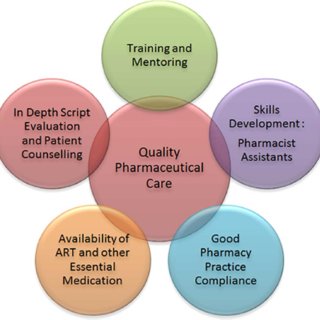❖ Introduction:
The drugs we take to stay healthy are developed and produced by the pharmaceutical industry. Because medicine and research are related, this sector has a lot of well-paying jobs. If you work in the pharmaceutical industry or want to, finding out more about the positions that pay the highest salaries can be helpful. This page discusses the pharmaceutical sector, what you learn in programs or degree programs related to the industry, the qualities and skills required of professionals in the field, and more of the highest-paying positions available.

❖ What Does the Pharma Industry Do:
The people, who do research, develop, test, produce, distribute medical products, technologies, services make up pharmaceutical sector. Researchers, data analysts, marketing experts, sales professionals are included in this. Public and private entities might exist in the pharmaceutical sector. Jobs in Pharmaceutical Industry (with salaries & responsibilities).
❖ What you learn in programs connected to pharmacy:
The career you want in pharmaceutical industry may influence the pharmaceutical program or degree you enrol in. There are some things you might discover.
1. Adverse drug reactions:

It’s critical for someone who frequently interacts with medical substances to comprehend how to collaborate. When a person takes multiple medications at once, there are occasionally negative side effects. A person who uses a blood thinner, for instance, may need to prevent the blood-thinning effects of their meds. It’s critical for pharmaceutical professionals to comprehend how different prescriptions might affect one another, whether they work in sales or pharmacy management.
2. Potential Side Effects:
It’s critical to comprehend any potential negative effects that a medication may cause. It may not be beneficial if a new drug for heartburn is developed by clinical researchers if the side effects are worse than condition itself. All pharmaceutical roles require an understanding of potential effects that each medication may have on patient who takes it.
❖ What to Teach Others:

Pharmacists, salespeople, liaisons, other professionals must be able to communicate complex clinical information to others outside pharmaceutical industry. While getting a degree for a profession in pharmaceuticals, pharmacists work directly with patients to keep them informed about medications they are taking. This allows you to hone your communication & interpersonal skills. To persuade them that their medications can benefit patients, salespeople must speak with physicians & other medical experts.
1. Understanding Insurance:
You may need to be familiar with the many types of insurance & how they operate depending on position you want within the sectors. Working closely with customers as a pharmacist or technician may need you to assist them in using their insurance or understanding how to use their benefits. You can finish courses on insurance & the function it serves in the pharmaceutical sector.
Depending on educational route you choose, you might complete courses in marketing & sales. If you are aware that you won’t get along with a pharmaceutical sales representative, you could master sales techniques & effective product marketing strategies. You might practice producing & giving presentations while taking this coursework.
❖ Qualities and Competencies for Pharmacists:
These are some characteristics & abilities that can be useful for susses and jobs in the pharmaceutical sector. Whatever position you choose within industry, you almost certainly need to communicate with other professionals & clients. Any pharmacy professional must know how to communicate complex information & listen carefully to others.
2. Technical Skills:

Technology is used to Increase by Researchers, Pharmacists, Data Analysts, and Manufacturers. Understanding how computers affect your work and how efficiently and accurately they run their processes is a crucial skill.
3. Leadership:

Depending on your career objectives, this trait may be crucial. It is crucial to practice your leadership skills if you want to be a lead researcher or management. Chemistry is the study of substances & how they interact with one another. The pharmaceutical industry can create new treatments & medications using this discipline. Even in a sales position, knowing chemistry allows you to comprehend fundamental functions of medication you are selling. The study of living things is known as biology. Researchers & scientists may create new medicines by combining chemistry with biology, particularly human anatomy. Every position in pharmaceutical industry necessitates a deep knowledge of how our bodies work & how they respond to drugs.
❖ The highest-paying positions in the pharmaceutical sector:
The following positions in pharmaceutical sector pay from ₹17 lakhs per year to ₹59 lakhs annually, making them some of highest-paying positions in sector.
1. Principal Tasks:
A professional who informs consumers, investors, and governmental organizations about a medical device, substance, & treatment is known as a medical science liaison. They carry out research to learn how to treat medical conditions & analyze information from medical samples. They are able to design & test medical devices as well as prepare grant applications to get federal financing. To succeed, one needs to be passionate about solving problems and knowledgeable about science & medicine.
2. Pharmaceutical Financial Analyst:
Pharmaceutical Financial Analyst can make ₹1.7 Lakhs to ₹5.5 Lakhs per year. Pharmaceutical financial analysts’ main responsibilities are to provide advice on corporate investments & business decisions. They can take into account marketing trends, the organization’s current financial stability, industry & business environment by analysing & evaluating financial data. When advising company executives on how to manage their finances. These professionals need in-depth understanding of accounting and finance in order to succeed. A regulatory specialist helps biotechnology or pharmaceutical companies obtain approval for their products. They can help scientists develop medicines in accordance with current regulations & consult with government representatives on how to make drugs & devices compliant. They are all substances & devices. Successful regulatory specialists possess critical thinking skills & an understanding of both government policy & medicine.
3. Pharmaceutical Sales Representative:
Pharmaceutical sales representative can make ₹1.3 Lakhs to ₹7.3 Lakhs per year, on average, across the nation. Pharmaceutical sales representatives’ main responsibilities is to Educate medical professionals on medical products & convey the importance of pharmaceuticals Pharmacists, nurses, other medical practitioners are examples of these healthcare professions. Additionally, sales representatives may give out products to customers & instruct them on how to use them. Pharmaceutical sales personnel need to be well-versed in both drugs & their target market to be successful.
4. Clinical Data Managers:
Clinical data manager’s main responsibilities is to give direction to groups of researchers and data analysts who collect & assess clinical data. They collaborate with other data managers to handle data & organise data from medical & pharmacological trials. Following evaluation, they produce data reports to explain their conclusions & what they mean to anyone who might not be familiar with them. A clinical data manager, for instance, might be in charge of a group of people who describe whether a new drug meets expectations. Clinical data managers must be natural leaders, mathematically inclined & enthusiastic about technology to succeed.
5. Pharmaceutical outside Sales Representative:
Outside sales representatives are distinct from general sales representatives in that they personally interact with target market. They routinely travel to meet with merchants and medical specialists. Additionally, they could represent their company at conferences or exhibit novel treatments & uses at trade shows. These experts need to be charming & informed about the medications they’re marketing if they want to succeed.
6. Research Scientists:
The national average salary for a research scientist is ₹2.4 Lakhs to ₹13.0 Lakhs annually. Pharmaceutical research scientists’ main responsibilities include conducting experiments to improve, discover & develop new medications. The Pharmaceutical Reactions & Potential Side Effects of Any New Drug are investigated using synthetic & natural materials. Clinical Trials May Be Planned & Executed by phamaceutical research Scientists Research Scientists need to be meticulous & have in-depth understanding of biology and chemistry to succeed in this position.
7. Pharmacy Manager:
The annual salary of Pharmacy Manager is ₹1.1 Lakhs to ₹10.2 Lakhs. A pharmacy manager provides direction & structure for store they oversee. Patients are being consulted, technicians and pharmacists are being trained, & medication deliveries are being scheduled. A pharmacy manager can find employment in a hospital, disbursement centre, corner store, independent or chain pharmacy, & grocery store. Pharmacy managers can increase their self-assurance & understanding of drugs & their interactions in order to succeed.
8. Biotechnology Consultant:
Biotechnology Consultants can make upto ₹11 Lakhs per year. Biotechnology Consultants Provide Biotechnology Organization Managers with Advice & Guidance on How to Develop Better Drugs & Medical Devices Successful biotech consultants are sufficiently knowledgeable about treatments, medical devices, developing products to offer precise guidance for boosting profits. When advising decision-makers on what new initiatives to launch, a bio-technology consultant may point out conditions that require treatment or emerging trends in field.
9. Bio-statisticians:
A bio-statistician can make ₹ 1.8 Lakhs to ₹ 13.0 Lakhs per year. Bio-statistician conducts research & gathers data on public health, and they can analyse that data to forecast the course of biological events. Doctors, surgeons, geneticists can collaborate with biostatisticians. They mainly work at research institutes or government organizations to monitor new diseases, assess efficacy of new medications, study genetics. You can learn analytical & mathematical skills to succeed as a biostatistician.
❖Conclusion:
As there is a rapid growth in the pharmaceutical industry and one can make a very successful career in this industry, it is a very good option for you to take admission in D.Pharma course. The no.1 place to do the best D.Pharma course in Meerut is IIMT University. Here you will get both theoretical as well as practical knowledge and your career will surely be very successful. This is why it is known as the best private university in Meerut, U.P.

